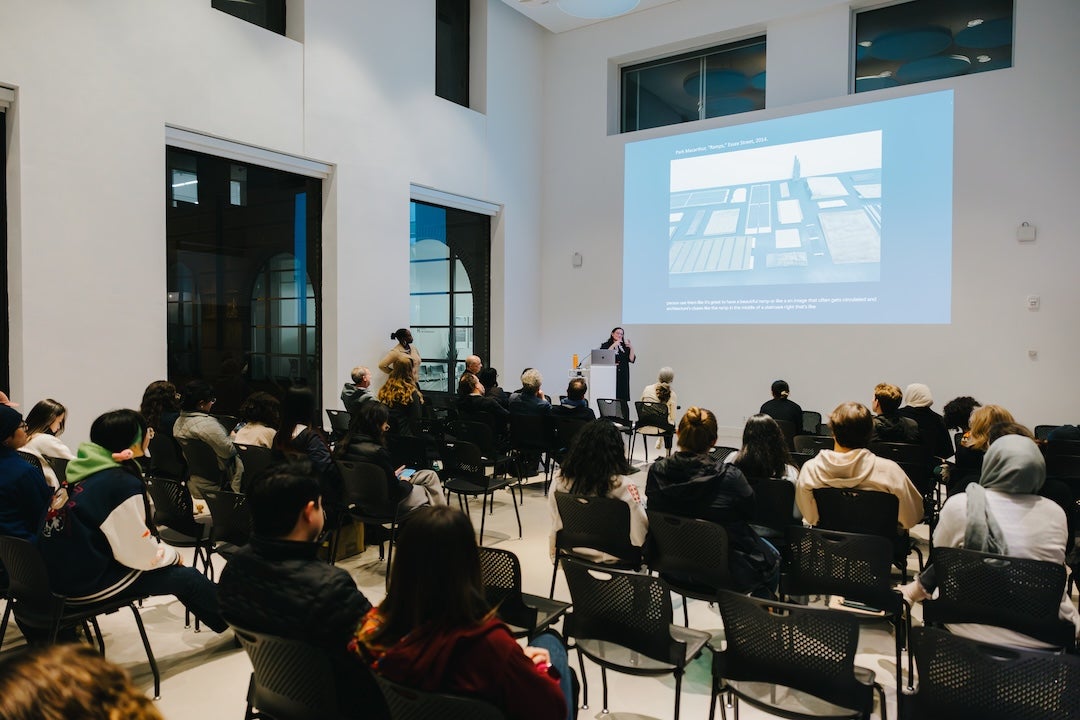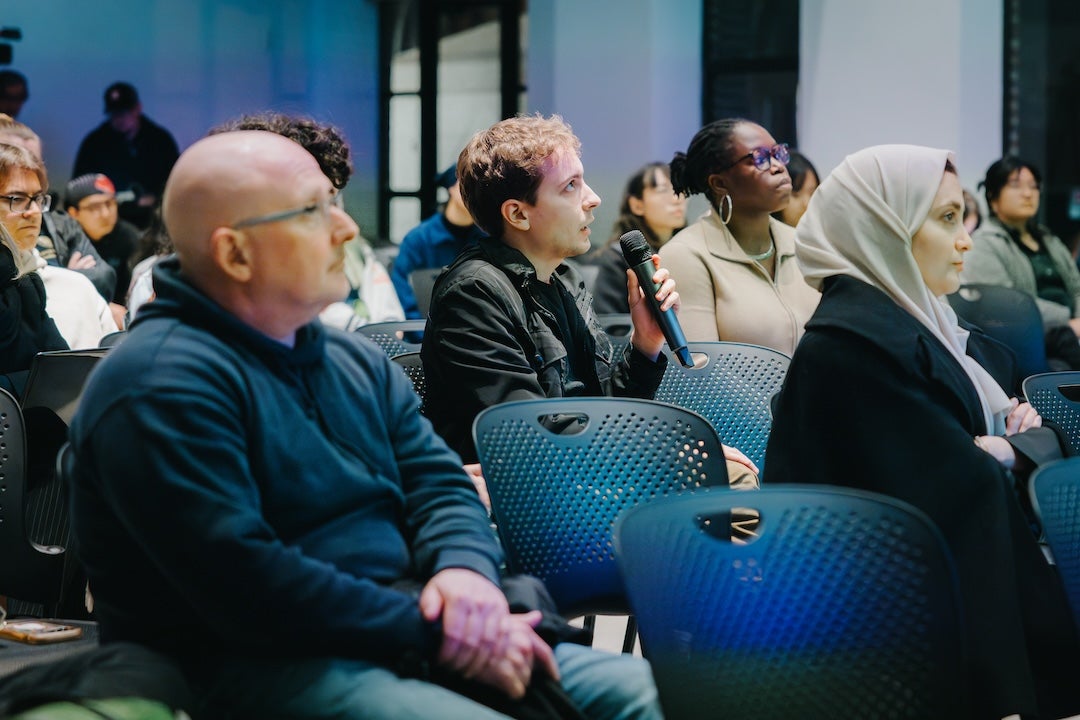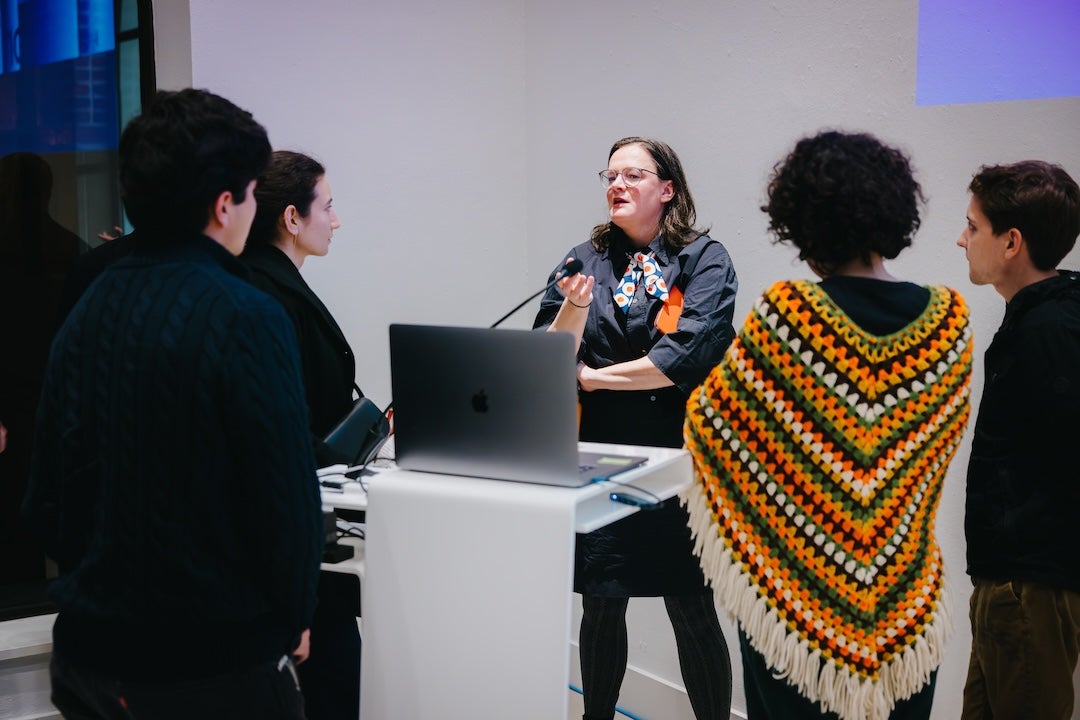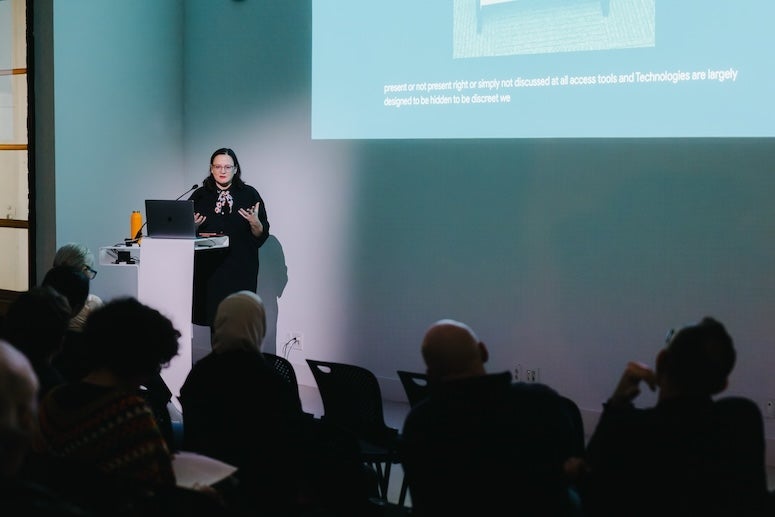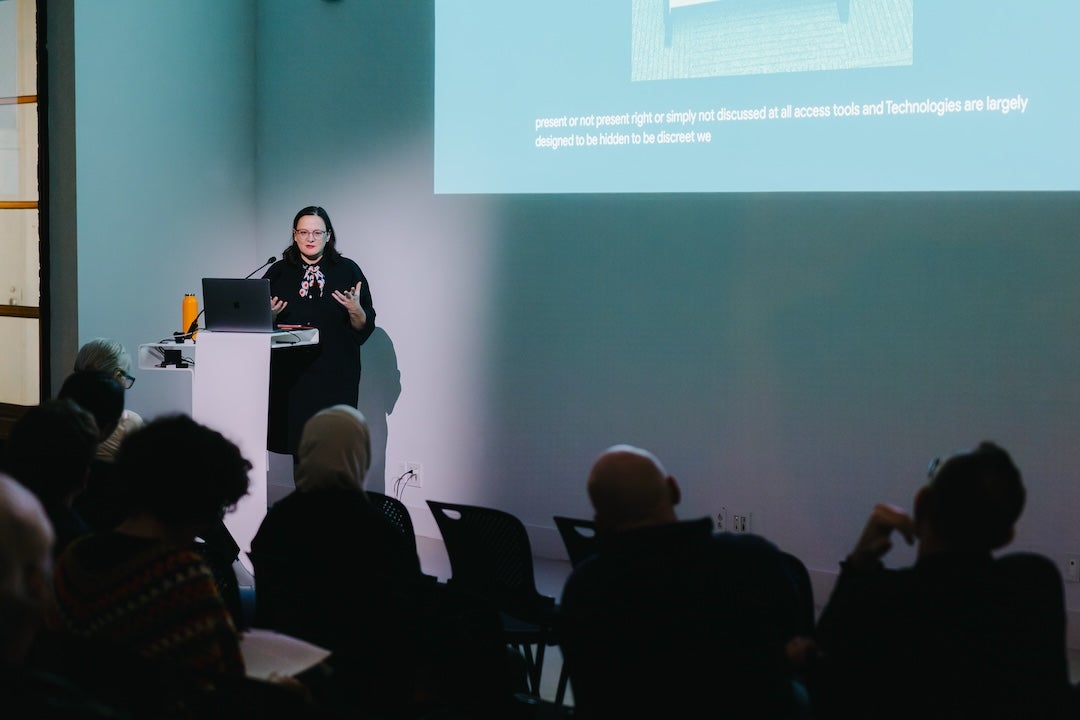
Bess Williamson, a historian of design and material culture, gave a lecture at Rice University’s MD Anderson Hall Jan. 22, focusing on the history of built environments for disabled people.
During the lecture, titled “Beyond Access: The Design of Disability Justice,” Williamson traced the history of activism and creative tinkering that changed the built environment for disabled people in recent times. Exploring both familiar legal requirements and lesser-known measures to make environments comfortable and supportive, the lecture considered access and the barriers still remaining in architecture and design.
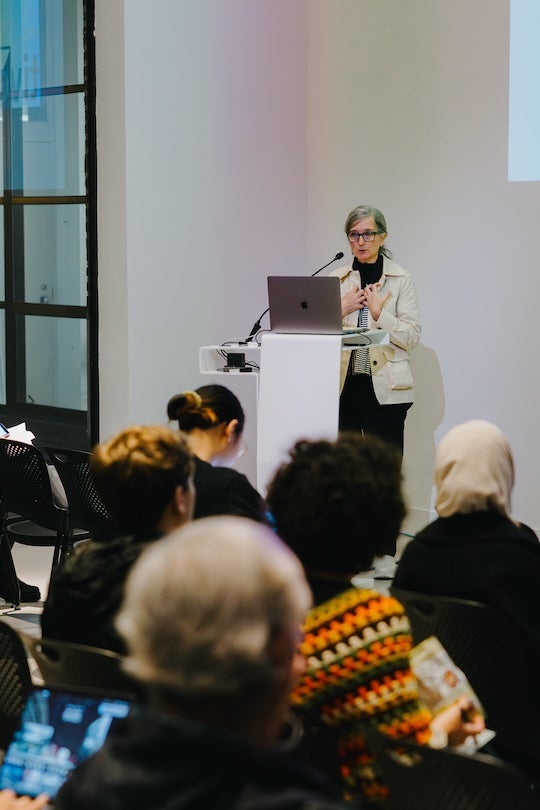
The lecture is organized in conjunction with Dawn Finley’s seminar Body-Plus, which examines the relationship between architecture, design and disability, and in collaboration with the university’s Building Research on Inequality and Diversity to Grow Equity (BRIDGE) program.
“I am deeply grateful to Professor Dawn Finley for bringing this important conversation to our school,” said Igor Marjanović, the William Ward Watkin Dean of Rice Architecture. “In so many ways, the question of universal human rights—including access to space—reflects our school’s renewed emphasis on the global, planetary issues that affect all citizens of the world: from access and disability to environment and community.”
“Historically, the methods and criteria for designing our built world bias a culturally and socially defined set of ‘standard’ or ‘typical’ human bodies and abilities and overlook the access potentials and needs of individuals with disabilities,” Finley said. “Bess Williamson’s lecture and workshop provided a range of historical insights into the potential of design through disability. It also served as an inspiration to Body-Plus, my seminar that engages students to think analytically and to design and fabricate full-scale ‘plus’ objects that challenge our collective sensibilities for various human bodies and abilities.”
Williamson has a particular interest in social and political concerns in design. Her research examines how the concept of “access” is valued in contemporary design and what its consequences mean for the everyday lives of disabled people. She is a professor of art history, theory and criticism at the School of the Art Institute of Chicago, where she teaches a range of design history courses.
Williamson is the co-editor of “Making Disability Modern: Design Histories,” a collection of case studies of objects, buildings and systems that reflect changing design approaches to disability from the 18th century to the present. Her first book, “Accessible America: A History of Disability and Design,” explores the history of design responses to disability rights from 1945 to recent times. In a new project, she is exploring the relationships between caregiving and design.
This program was made possible through the generous support of the Betty R. and George F. Pierce Jr., FAIA, Fund; the William B. Coleman Jr. Colloquium Fund for Architecture; and the Wm. W. Caudill Lecture Series Fund.
